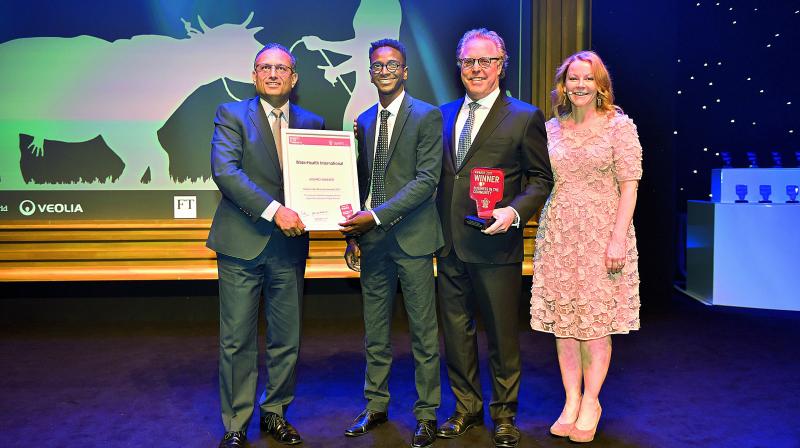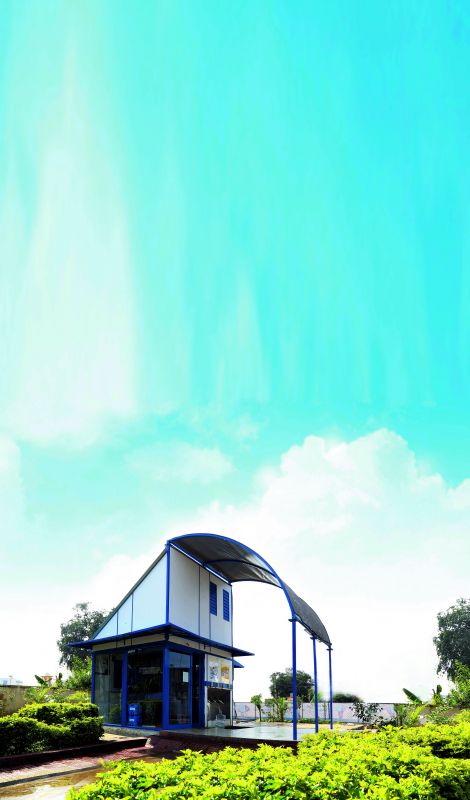Quenching India's thirst
A Hyderabad-based company is working hard to provide safe and potable water to millions of people.

Water contamination, one of the biggest problems the world is facing, is an effect of the growing industrialisation. Dealing with this problem, WaterHealth International, a Hyderabad-based company, has been working towards providing clean water to the under-privileged in rural as well as the urban areas.
For their efforts, they have been awarded the prestigious Unilever Global Development Award, for providing clean, safe and affordable drinking water to the underserved and marginalised communities in India, Ghana and Nigeria at the recently held 20th Responsible Business Awards ceremony, which is an annual event organised by the Business in the Community (BITC), a part of the Prince of Wales’ Responsible Business Network.
 One of the plants for dispensing water
One of the plants for dispensing water
“This award is a global recognition of our consistent efforts over the period of time in providing access to safe, clean and affordable drinking water to millions,” says Vikas Shah, chief operating officer of the company.
Explaining the process of setting up a water-treatment plant, Vikas asserts, “We operate on build-operate-transfer policy. Once we set-up the plant, we operate it for some time and then transfer it to the local community.”
Interestingly, one can get 20 litres of water at as cheap as Rs 5 from the plant. “In many Indian states, women still have to walk miles to get a few litres of water every day and this is not just the case of rural India. There are places even in the big cities, especially the slum areas, where getting clean water is a huge issue. Many of these people can’t afford branded 20 litres water, which costs around '60-80 per day, and hence are forced to use whatever is available. While boiling water can help, it doesn’t treat the water completely and it still can be harmful. We aim to help these communities with clean water for daily household needs, for which the prices need to be controlled.”
The company now has presence even in a few African countries such as Ghana and Nigeria. About the company’s future plans, Vikas elaborates, “We plan to provide access to potable and safe drinking water to over 100 million people by 2020, especially the marginalised communities. We are also working on developing on a device called Autonomous Transportable Operating Module (ATOM), which can be air-dropped at locations hit by natural calamities to dispense fresh water in an hour’s time. This can be used especially during floods.”

